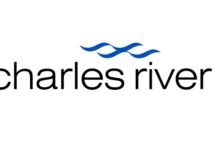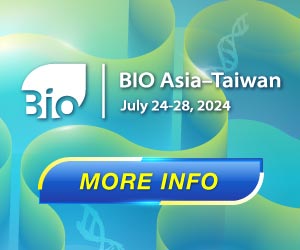Eli Lilly and Company and Innovent Biologics, Inc. announced a global expansion of their strategic alliance for TYVYT® (sintilimab injection), an anti-PD-1 monoclonal antibody immuno-oncology medicine that was co-developed by Innovent and Lilly in China.
In 2019, Lilly and Innovent began commercializing TYVYT in China after being granted marketing approval for relapsed or refractory classic Hodgkin’s lymphoma after at least two lines of systemic chemotherapy. TYVYT is the only PD-1 inhibitor to be included in China’s National Reimbursement Drug List (NRDL) and is included in the 2019 Guidelines of Chinese Society of Clinical Oncology for Lymphoid Malignancies.
Lilly and Innovent currently co-commercialize TYVYT in China. Under the terms of the expanded license agreement, Lilly will obtain an exclusive license for TYVYT for geographies outside of China and plans to pursue registration of TYVYT in the U.S. and other markets. In return, Innovent will receive an upfront payment of $200 million and will be eligible for up to $825 million in potential development and commercial milestones, as well as tiered double-digit royalties on net sales. Both companies will also retain the right to study TYVYT in combination with other medicines as part of their own clinical programs.
The two companies are also studying TYVYT as a potential therapy in non-squamous non-small cell lung cancer (NSCLC) and several other types of cancer. Earlier this month, the two companies released encouraging interim analysis data from ORIENT-11 at the IASLC World Conference on Lung Cancer 2020 Virtual Presidential Symposium. ORIENT-11 is a randomized, double-blind, Phase 3 clinical trial evaluating TYVYT or placebo in combination with Alimta® (pemetrexed for injection) and platinum chemotherapy as a first-line treatment for advanced or recurrent non-squamous NSCLC without sensitizing EGFR mutations or ALK rearrangements. Based on the interim analysis conducted by the Independent Data Monitoring Committee, TYVYT in combination with Alimta and platinum chemotherapy demonstrated a statistically significant improvement in progression-free survival compared with placebo in combination with Alimta and platinum chemotherapy, which met the pre-defined efficacy criteria. A supplemental New Drug Application (sNDA) for this indication is under regulatory review in China. The companies look forward to future submissions with the U.S. Food and Drug Administration and other regulatory agencies for this and other indications.
“We are thrilled to expand on our successful China TYVYT collaboration with Lilly to now include markets outside of China. This agreement also marks the first solid step in getting Innovent’s innovative portfolio into the global market,” said Michael Yu, Ph.D., Founder, Chairman and CEO of Innovent. “We are confident that pairing Lilly’s global commercial expertise with TYVYT’s clinical profile will further accelerate our mission, benefitting patients globally.”
“Lilly Oncology is dedicated to delivering life-changing medicines and support to people living with cancer and those who care for them,” said Anne White, president of Lilly Oncology. “Our alliance with Innovent successfully brought TYVYT to market in China. Through this expansion of our collaboration, we hope to make TYVYT accessible to patients globally. We believe TYVYT could deliver significant value to people living with cancer around the world and we intend to continue to study its potential across tumor types.”
This transaction is subject to customary closing conditions, including clearance under the Hart-Scott-Rodino Antitrust Improvements Act. The transaction will be reflected in Lilly’s reported results and financial guidance according to Generally Accepted Accounting Principles (GAAP). There will be no change to Lilly’s 2020 non-GAAP earnings per share guidance as a result of this transaction.
About TYVYT (Sintilimab Injection)
TYVYT (sintilimab injection) is an innovative drug with global quality standards jointly developed by Innovent and Lilly in China. TYVYT has been granted marketing approval by the NMPA for the treatment of relapsed or refractory classic Hodgkin’s lymphoma after at least two lines of systemic chemotherapy and was included in the 2019 Guidelines of Chinese Society of Clinical Oncology for Lymphoid Malignancies.
In April 2020, the NMPA accepted the supplemental new drug application for TYVYT in combination with ALIMTA (pemetrexed for injection) and platinum as first-line therapy in advanced or recurrent non-squamous non-small cell lung cancer (NSCLC). In May 2020, TYVYT combined with gemcitabine and platinum chemotherapy met the predefined primary endpoint in the Phase 3 ORIENT-12 study as first-line therapy in patients with locally advanced or metastatic squamous NSCLC. TYVYT monotherapy met the primary endpoint in the ORIENT-2 study as second-line therapy in patients with advanced or metastatic esophageal squamous cell carcinoma as well. In August 2020, the NMPA accepted the sNDA for TYVYT in combination with gemcitabine and platinum chemotherapy as first-line therapy in patients with locally advanced or metastatic squamous NSCLC.
TYVYT is a type of immunoglobulin G4 monoclonal antibody, which binds to PD-1 molecules on the surface of T-cells, blocks the PD-1/ PD-Ligand 1 (PD-L1) pathway and reactivates T-cells to kill cancer cells. Innovent is currently conducting more than 20 clinical studies with TYVYT to evaluate its safety and efficacy in a wide variety of cancer indications, including more than 10 registrational or pivotal clinical trials.
About Eli Lilly and Company
Lilly is a global healthcare leader that unites caring with discovery to create medicines that make life better for people around the world. We were founded more than a century ago by a man committed to creating high-quality medicines that meet real needs, and today we remain true to that mission in all our work. Across the globe, Lilly employees work to discover and bring life-changing medicines to those who need them, improve the understanding and management of disease, and give back to communities through philanthropy and volunteerism.























